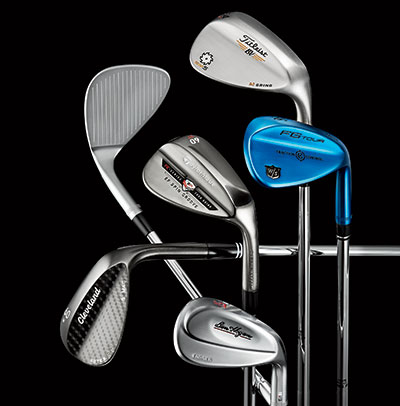How Wedges Regained Their Edge
When the USGA rolled back the rules on grooves starting in 2010, the fear was that the ability to get short shots close to the hole would suffer. But five years later, the data suggests otherwise. The US PGA Tour averages for scoring, proximity to the hole from the rough and scrambling (even at US Opens) are all slightly better than before the rule change (which restricted a groove’s volume and edge sharpness). Sure, tour players have adapted, but designers have, too, re-thinking head shapes, surface roughness and sole grinds. Here are six interesting examples.
CALLAWAY
Mack Daddy 2 PM Grind [below, centre row left]
Phil Mickelson’s input led to the high-toe shape and grooves all across the face for more friction on flop shots.
CLEVELAND
RTX 2.0 Wide Sole [below, bottom row left]
It has the standard 2.0’s sharp groove and friction elements, but the big bottom mixes less bounce with more stability through the turf.
TAYLORMADE
Tour Preferred EF [below, centre row, centre]
Instead of a cutting tool, designers chose an electro-chemical process to form sharper edges on a durable nickel-cobalt face insert.
BEN HOGAN
TK-15 [below, bottom row right]
The variety of lofts (every single degree from 48 to 63) is bolstered by a sole with more bounce on the front and less on the back.
TITLEIST
Vokey Design SM5 RAW [below, top]
The raw finish is preferred on tour for its reduced glare. Now it’s a consumer choice, along with custom stamping.
WILSON STAFF
FG Tour TC [below, centre row right]
The gun-blue finish grabs the eye, but the milled groove’s angled walls and laser-etched lines between grooves will better grab the ball.





